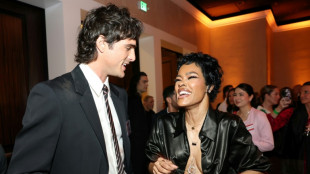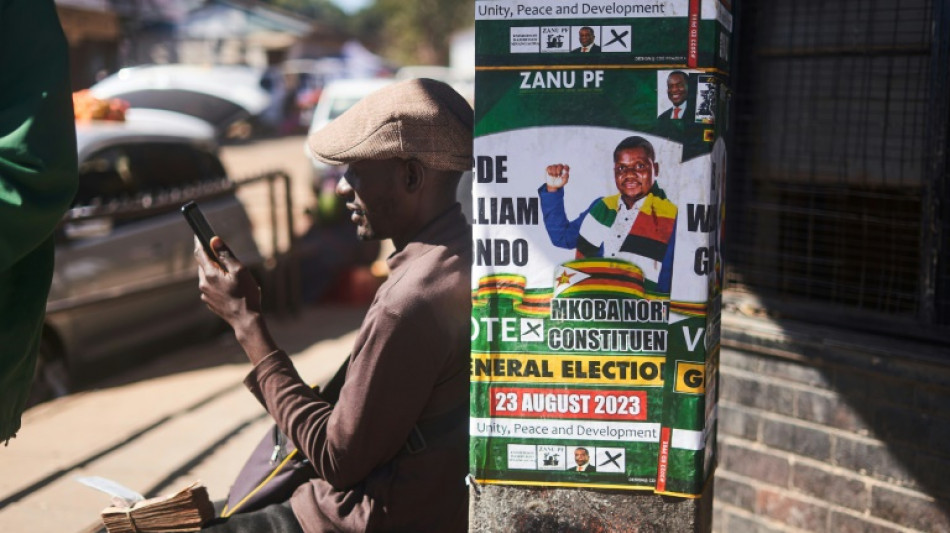
-
 Instagram CEO to testify at social media addiction trial
Instagram CEO to testify at social media addiction trial
-
Deadly mass shooting in Canada: What we know

-
 NATO launches 'Arctic Sentry' mission after Greenland crisis
NATO launches 'Arctic Sentry' mission after Greenland crisis
-
Israel's Netanyahu at White House to push Trump on Iran
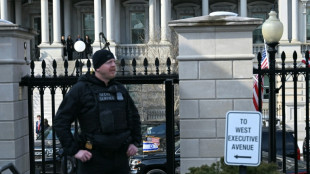
-
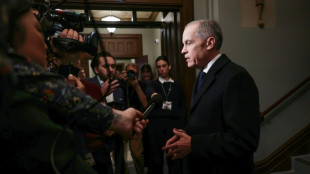 Canada stunned by deadliest school shooting in decades
Canada stunned by deadliest school shooting in decades
-
US lawmakers grill attorney general over Epstein file release
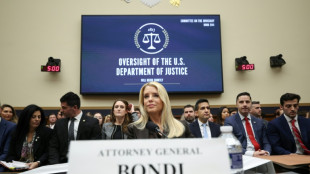
-
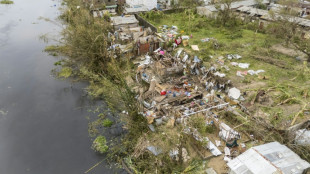 Cyclone kills 20 in Madagascar as 2nd-largest city '75% destroyed'
Cyclone kills 20 in Madagascar as 2nd-largest city '75% destroyed'
-
French court rejects bid to reopen probe into black man's death in custody
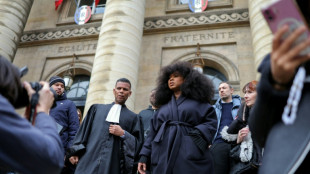
-
 French rape survivor Gisele Pelicot reveals pain, resilience in memoirs
French rape survivor Gisele Pelicot reveals pain, resilience in memoirs
-
xAI sees key staff exits, Musk promises moon factories
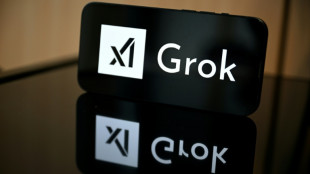
-
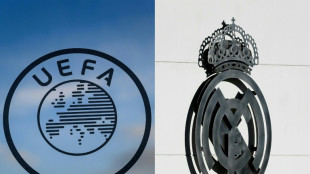 Real Madrid, UEFA reach 'agreement' over Super League dispute
Real Madrid, UEFA reach 'agreement' over Super League dispute
-
Johannesburg residents 'desperate' as taps run dry
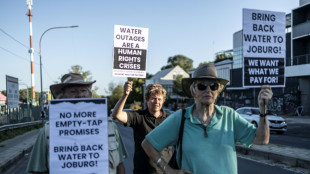
-
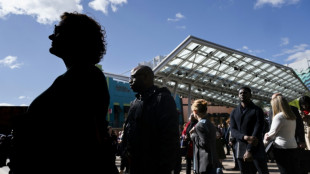 US hiring soars past expectations as unemployment edges down
US hiring soars past expectations as unemployment edges down
-
Stock markets rise as US jobs data beats expectations
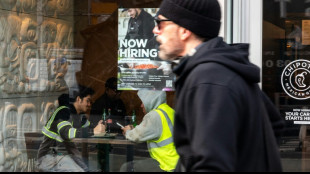
-
 Daniel Siad, the modelling scout with close ties to Epstein
Daniel Siad, the modelling scout with close ties to Epstein
-
France lawmakers urge changes to counter dwindling births

-
 Von Allmen focuses on 'here and now' after making Olympic ski history
Von Allmen focuses on 'here and now' after making Olympic ski history
-
Actor behind Albania's AI 'minister' wants her face back
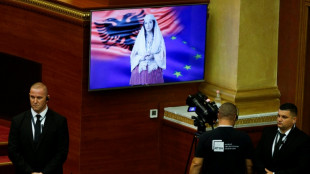
-
 Von Allmen joins Olympic skiing greats, Kim seeks snowboard history
Von Allmen joins Olympic skiing greats, Kim seeks snowboard history
-
Eat less meat, France urges, for sake of health, climate
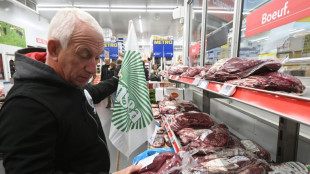
-
 Australia cruise past Ireland at World Cup after skipper Marsh ruled out
Australia cruise past Ireland at World Cup after skipper Marsh ruled out
-
IOC to try to convince Ukrainian not to wear banned helmet

-
 Barca missing Rashford, Raphinha for Atletico cup clash
Barca missing Rashford, Raphinha for Atletico cup clash
-
Tractors hit Madrid to protest EU's trade deal with South America
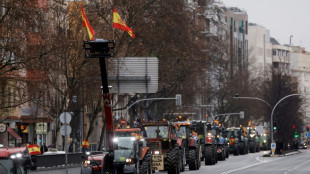
-
 US snowboard star Kim stays on track for historic Olympic hat-trick
US snowboard star Kim stays on track for historic Olympic hat-trick
-
The obstacles to holding war-time elections in Ukraine

-
 History-maker Von Allmen wins third Olympic gold
History-maker Von Allmen wins third Olympic gold
-
Depleted Australia reach 182-6 as skipper Marsh ruled out of Ireland clash

-
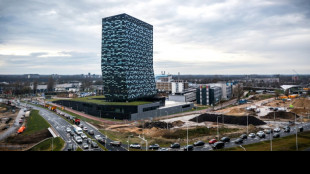 Dutch court orders investigation into China-owned Nexperia
Dutch court orders investigation into China-owned Nexperia
-
US snowboard star Kim stays on track for Olympic hat-trick

-
 Spurs sack Frank after miserable eight-month reign
Spurs sack Frank after miserable eight-month reign
-
Stock markets mixed, dollar dips before US jobs data

-
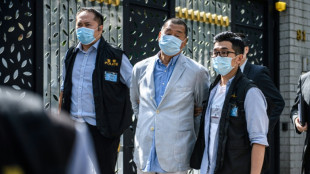 Hong Kong journalists face 'precarious' future after Jimmy Lai jailed
Hong Kong journalists face 'precarious' future after Jimmy Lai jailed
-
French AI firm Mistral to build data centres in Sweden

-
 Frank sacked by Spurs after Newcastle defeat
Frank sacked by Spurs after Newcastle defeat
-
South Africa pip Afghanistan in double super over T20 thriller

-
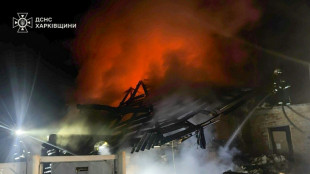 Three Ukrainian toddlers, father, killed in Russian drone attack
Three Ukrainian toddlers, father, killed in Russian drone attack
-
Siemens Energy trebles profit as AI boosts power demand

-
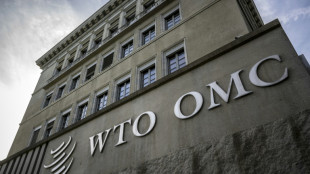 WTO must reform, 'status quo is not an option': chief
WTO must reform, 'status quo is not an option': chief
-
European airlines warn of 'severe disruption' from new border checks

-
 French rape survivor Gisele Pelicot to reveal pain and courage in memoirs
French rape survivor Gisele Pelicot to reveal pain and courage in memoirs
-
EU eyes tighter registration, no-fly zones to tackle drone threats
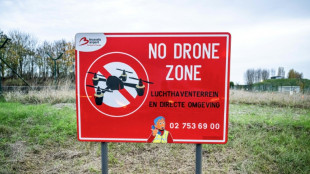
-
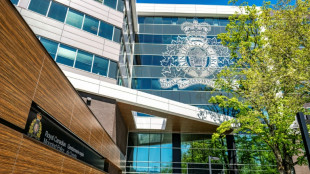 Shooter kills 9 at Canadian school, residence
Shooter kills 9 at Canadian school, residence
-
Australia captain Marsh out of World Cup opener, Steve Smith to fly in

-
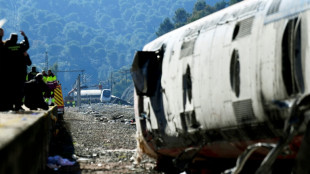 Spanish PM vows justice, defends rail safety after deadly accidents
Spanish PM vows justice, defends rail safety after deadly accidents
-
Meloni and Merz: EU's new power couple
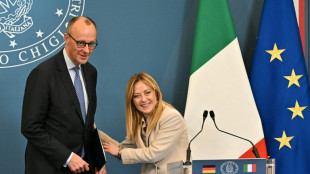
-
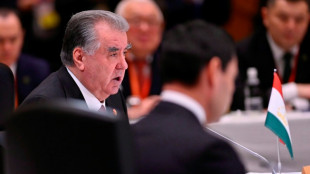 Veteran Tajik leader's absence raises health questions
Veteran Tajik leader's absence raises health questions
-
EU must 'tear down barriers' to become 'global giant': von der Leyen
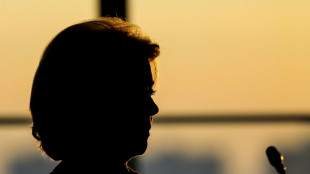
-
 Stock markets rise, dollar dips as traders await US jobs
Stock markets rise, dollar dips as traders await US jobs
-
US grand jury rejects bid to indict Democrats over illegal orders video
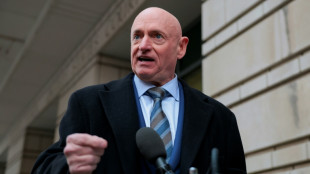

Zimbabwe election disinformation spreads on WhatsApp
From doctored photos making small crowds big to posts praising government accomplishments that never were, WhatsApp has become the channel of choice for disinformation in Zimbabwe before this month's elections.
The landlocked southern African country heads to the polls on August 23 to elect the president and legislature in what analysts expect to be a tense affair amid a crackdown on the opposition and rigging fears.
Large-scale disinformation campaigns in the run-up to a vote are now a staple across the continent. Zimbabwe is no exception, but the situation there is more opaque.
In Kenya and Nigeria, which recently held votes, misinformation peddlers hung out in the open, mostly on Facebook and Twitter, while in Zimbabwe WhatsApp is king of the rapid spread, analysts say.
This is because that's where most voters are -- but the app's encrypted messaging service makes fact-checking harder, as fake content proliferates undetected.
Chris Chinaka, editor-in-chief of ZimFact, a Zimbabwean fact-checking group, said staff now spend most of the time flicking through WhatsApp groups for messages to debunk.
"For most Zimbabweans, the internet is WhatsApp, and a lot of communication happens there," said Nqaba Matshazi, a journalist working at the Media Institute of Southern Africa (MISA) in Zimbabwe.
Internet penetration is quite low in Zimbabwe, where only about a third of the country's more than 15 million people are online, according to a 2023 report by DataReportal, a data analysis firm.
Only nine percent of those who have internet use social media.
WhatsApp has a much broader reach and many Zimbabweans consider it a safe means of communication -- a valued commodity in a country where criticising the government can land people in jail.
In May, Zimbabwe approved a broadly worded law imposing harsh penalties for damaging the country's "sovereignty and national interest", which critics say effectively bans government criticism.
- Bots and pseudonyms -
Few people on Twitter write about politics under their real name, as that comes with the "risk of you being arrested", said Matshazi.
But WhatsApp is not a free zone either, as messages on the app have also landed people behind bars, he added.
The law worsened "a festering wound in an environment where already freedom of expression is quite limited," said Matshazi.
Still, traditional social media are not immune from fake content.
Political analyst Jamie Mighti said Twitter was awash with bots that seem to have been commissioned to push government talking points.
Some embellish the accomplishments of the ruling ZANU-PF party, in power since independence in 1980.
Others repeat President Emmerson Mnangagwa's view that Western sanctions are to blame for the country's economic collapse.
The United States and Europe deny this, noting that the measures target specific individuals accused of graft and right abuses.
- Doctored videos -
Manipulated photos and videos are also circulating in large numbers -- with both ZANU-PF and the leading opposition party, the Citizens' Coalition for Change (CCC), making good use of them, analysts say.
"(They) have used doctored images of rallies from the past, or from totally different contexts, to project the false impression of overwhelming support," said Bhekizulu Tshuma, a media studies professor at the National University of Science and Technology in Zimbabwe.
The parties have also used the tactic to suggest their rivals have few followers, he added.
Campaign messages have been deliberately distorted.
In one example, a clip of CCC leader Nelson Chamisa was edited to make it sound as if he advocated for the reversal of radical land reforms enacted by late president Robert Mugabe -- and for the land to be returned to white farmers.
Disinformation can also be easily found on television, where experts say state broadcaster ZBC often depicts the CCC as a party with little support and takes its leader's speeches out of context.
"It is a matter of public record that ZBC refuses to give any independent or fair coverage to the CCC," the party's spokeswoman Fadzayi Mahere wrote on Twitter, which is being rebranded as "X".
"Not only is the state media's coverage unequal, but whatever token coverage is accorded to the opposition is biased, derogatory and manipulated."
Voices critical of ZANU-PF also have limited reach in South Africa, which is home to a large Zimbabwean diaspora, said Mighti.
Zimbabweans abroad, in South Africa and the UK in particular, also play a critical role in amplifying misinformation, analysts say.
"A lot of the discourse about the Zimbabwean election happens on the internet and in South African, European and American media, primarily because of the restrictions in Zimbabwe and the fear of reprisals," he said.
A.AlHaj--SF-PST



